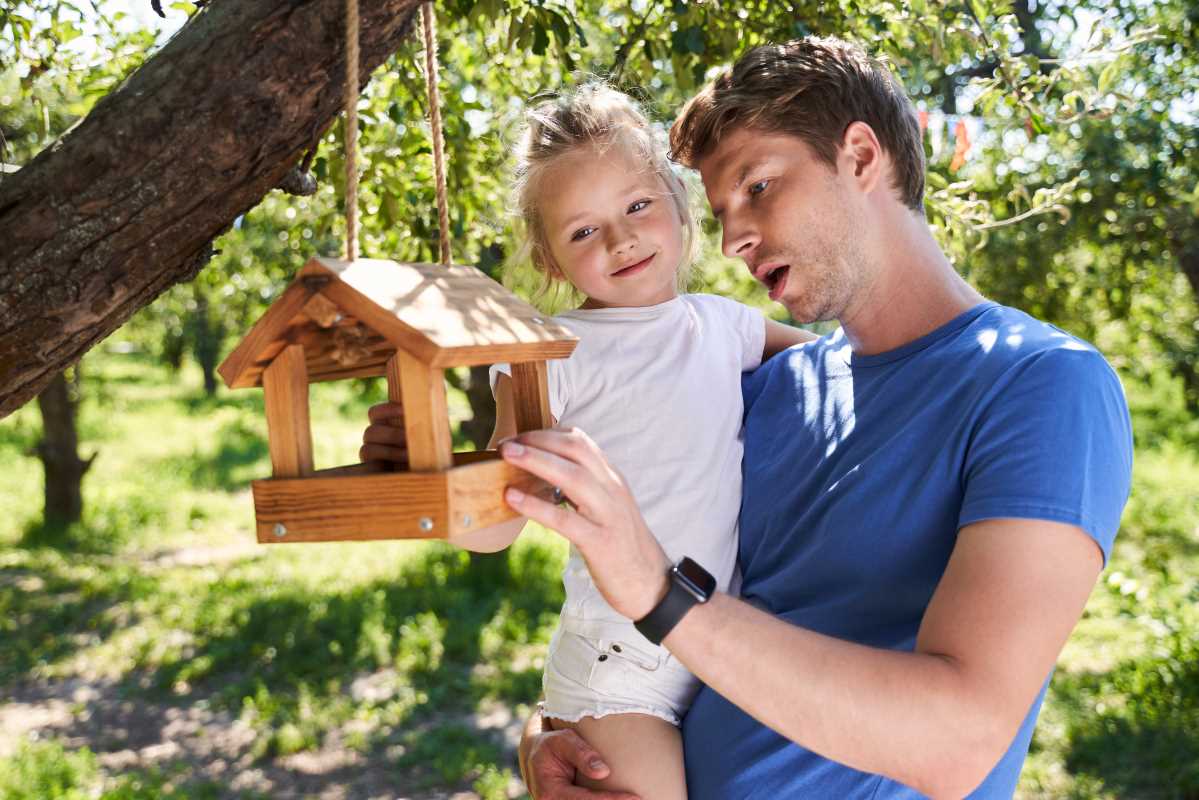There’s a quiet power in the little things we do for the people we love. When it comes to raising children, extravagant gestures might make for big memories, but it’s the small, everyday actions that truly communicate care, build trust, and foster connection. Kids, even very young ones, are incredibly attuned to their parents’ attention and affection. They don’t need grand displays to feel loved; rather, they seek out and thrive on the consistency of little gestures that say, “You matter to me.”
Below, we’ll explore why these small acts of care are so significant and share a wealth of practical ideas for nurturing your parent-child relationship through tiny, meaningful moments.
Why Small Gestures Make a Big Difference
Young children, especially, experience the world through the little moments that make up their days. A quick hug before school, a note left on their pillow, or listening with genuine interest when they talk about their day all help shape their sense of security, self-worth, and connection. Small, consistent actions communicate more than words; they’re the building blocks of trust and love. Cumulatively, these little efforts create a powerful message that says, “I see you, I care about you, and you are important to me.”
Small gestures are also sustainable. You don’t need a special occasion, a big budget, or hours of free time. Unlike one-time extravagant events, these simple acts can be woven seamlessly into your family’s routine, regardless of your schedule or resources. They prove to your child, over and over, that love is a practice—not an occasional treat. Even on busy days, small moments like a shared giggle over a silly joke or an extra goodbye hug can be a quiet but crucial reminder of your bond.
Small gestures also have incredible longevity. Long after the specifics of grand outings fade, kids tend to remember the small, consistent actions that made them feel loved on a daily basis. A simple ritual, like sharing a goodnight phrase or having Sunday morning pancakes together, can leave a lasting imprint on a child’s heart.
The Science of Connection
Child development experts have shown that children crave affirmation, connection, and a sense of belonging. Consistent, positive attention can foster everything from resilient self-esteem to emotional intelligence. When kids feel truly seen and understood, they are more likely to come to you in times of struggle, to remain confident as they grow, and to develop healthy, trusting relationships with others.
Research into attachment emphasizes the importance of attuned caregiving. Warm, positive interactions form the secure foundation that children need to explore their world and thrive emotionally. This means small, everyday gestures like comforting your child after a bad dream or smiling at their excitement are actually nurturing their psychological wellbeing and sense of safety.
Not only do small gestures help children feel secure in their relationships, but they also model emotional habits they’ll carry into adulthood. When children experience kindness, empathy, and love in daily interactions, they are more likely to replicate these behaviors in their own friendships, partnerships, and parenthood someday.
Small Gestures to Show You Care
1. Look Up When They Speak
It sounds simple, but direct eye contact speaks volumes. When your child comes to tell you a story or ask a question, pause what you’re doing, look them in the eyes, and really listen. This makes them feel valued, heard, and respected.
You can take this one step further by paraphrasing what they say to show you’re fully engaged. For instance, if they’re excitedly recounting how they scored a goal at recess, you might say, “Wow, you must have felt so proud when the ball went in the net!” This not only affirms their experience but also encourages deeper sharing.
2. Include Them in Little Tasks
Invite your child to help with dinner, fold laundry together, plant flowers in the garden, or even sweep the porch. These moments, though mundane, create opportunities for conversation and bonding. Kids relish the feeling of being needed, included, and trusted with responsibility.
You could even turn these shared tasks into mini-traditions. For example, declare Wednesday nights “family kitchen night” where everyone works together to make meals. Such rituals create a cooperative environment where your child feels like an important and supported member of the family.
3. Write Notes and Leave Surprises
Slip an encouraging note into their lunchbox, leave a smiley face on their napkin, or tuck a short message under their pillow. For older children, a text message with a “Thinking of you!” or a private, handwritten joke can brighten their day.
You can personalize these surprises to reflect their interests. If your child loves drawing, tuck a small sketch with your note. If they’re into superheroes, leave them a "super-powered" message of encouragement. These thoughtful touches show you’re paying attention to what makes them unique.
4. Create Rituals, No Matter How Small
Whether it’s a secret handshake before school or a few pages of their favorite book at bedtime, periodic rituals cultivate a strong bond. Consistency helps children feel secure and teaches them that your connection is a priority.
Even seemingly minor rituals, like sharing a bowl of popcorn every Friday night or saying a specific goodbye phrase before they leave for school (“See you later, alligator!”), can hold immense meaning. These habits not only strengthen relationships but also act as anchors for stability during times of change.
5. Offer Unhurried Touch
A gentle hug, a kiss on the forehead, or even brushing their hair can be acts of deep care. Kids often recognize comfort through these physical acts, which also foster attachment and emotional wellbeing.
Sometimes, these touches can be playful! A quick tickle fight, a piggyback ride across the living room, or lying side by side to gaze at the clouds create layers of happy, emotion-rich experiences.
6. Say Their Name with Affection
We often call our kids by pet names, but intentionally saying their given name—with affection and attention on them—is powerful. It signals that this moment is just for them.
You might also say their name during affirmations, like, “Lucy, I’m so impressed with how helpful you were today.” Pairing their name with genuine compliments reinforces your recognition of them as individuals.
7. Celebrate Everyday Achievements
You don’t need a trophy to acknowledge your child’s effort. A high five for finishing homework, a silly dance to celebrate getting dressed on their own, or a “You did it!” for trying something new makes all the difference.
Encourage them to reflect on their own achievements, too. Asking, “What part of today made you feel proud?” fosters self-recognition and teaches them to value personal growth.
8. Be Curious About Their World
Ask about everything from their dreams or favorite superheroes to their sandwich preferences. Curiosity about their world fosters connection and shows them their interests matter to you.
9. Share Stories About Yourself
Telling your own childhood stories is a fantastic way to connect. Hearing that you also dealt with nerves before spelling tests or once spilled paint on the carpet creates relatability and builds shared humanity.
Stories about your past mistakes can also model problem-solving and resilience, showing children that it’s okay to stumble as long as you persevere.
10. Use Encouraging Words Generously
Recognize both big and small victories with words that empower. From saying “I’m proud of you” to simply observing, “You worked hard on that drawing,” your words can become a steady source of belief in themselves.
11. Apologize When You Need To
When you snap or make a mistake, own up to it. Promises like “I’ll try harder to be more patient next time” model accountability and offer reassurance that love withstands occasional imperfections.
12. Surprise Them for No Reason
Randomly delivering their favorite treat, switching up bedtime with an extra story, or declaring an impromptu “ice cream for dinner” night are ways to keep life magical while showing they’re on your mind.
13. Display Their Creations
Framing or highlighting their work on a family gallery wall shows your pride. Regularly updating these displays can help kids see their growth and feel appreciated.
14. Allow Space for Their Feelings
Make room for their emotions, even when they’re uncomfortable or tough to process. Saying things like, “It’s okay to feel sad,” nurtures emotional intelligence and resilience.
15. Celebrate Their Individuality
Notice small details that make them unique. Commenting on their thoughtfulness during sharing or their knack for creating imaginative stories fosters pride in their individuality.
16. Take Interest in Their Friends
By asking about or welcoming their social circle, you validate their world beyond home, and they’ll feel understood.
17. Make Time for Play
Play doesn’t have to be elaborate! Listening to their made-up rules during board games or laughing as you stumble through their favorite video game sends a message that their joy is important to you.
18. Keep Promises (Even the Small Ones)
If you promise cookies or an outing, following through shows reliability and respect for their trust.
19. Draw, Paint, or Create Together
Collaborative creativity loosens boundaries and encourages open dialogue.
20. Practice Gratitude Together
It’s a simple moment, but practicing gratitude binds you through shared reflection.
Making Small Gestures a Habit
Begin with awareness. Notice what makes your child light up, then integrate those little things more often. Habits don’t have to overhaul your schedule, but they bring rhythm and deep connection.
It’s the consistent, thoughtful gestures that lay the foundation for lifelong bonds. By paying attention to small, intentional moments, you’re sending a timeless message of safety, value, and love. Choose your small gesture today. It’s where your connection can blossom.






